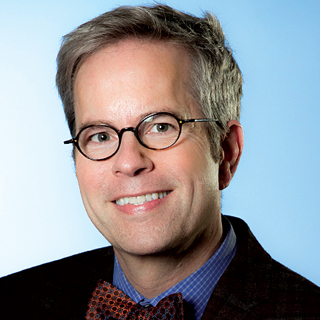
I rinse out my used plastic bags. Maybe not all the time, but often …
Over the weekend, when I found myself carefully examining my Ziploc, it seemed a quick rinse and an inside-out rest on my drying rack would return it to a usable state.
It’s not that I’m all that “green.” I do love our Mother Earth, but that wasn’t driving my behavior.
Growing up at the apron strings of my grandma taught me many lessons. She represented the very special generation (“The Greatest Generation”) that encompassed the immigrant experience, the Depression, the world wars and the huge cultural shifts of the 20th Century.
For Grandma, these experiences, and the values that they instilled, were best represented by the vast reservoir of used aluminum foil and rinsed-out plastic bags that she always had at the ready. Grandma died 13 years ago in the same excellent nursing home where I began my career as a nurse assistant. Her memory remains a blessing.
However, there’s a very different kind of grandma living in our nursing homes today. In 2016, the average age of our long-stay residents was 83 years. But the “New Grandma” was born as the Great Depression ended. In many instances, she was first generation American, born to immigrants who made their way to our nation in the decades prior. They were filled with the classic American values of patriotism, deference to authority, trust in society’s structures and institutions, and conformity to the mores of one’s community.
New Grandma came of age during World War II, and her peers are referred to by some as the “Silent Generation,” sandwiched between the “Greatest Generation” and their children, the “Baby Boomers.”
New Grandma gave birth to the Baby Boomers between 1946 and 1964. Well done, New Grandma! Baby Boomers experienced a time of prosperity and the absence of the international conflict of world wars. They protested the war in Vietnam and, unlike their parents and grandparents, they became great consumers.
They lived through the assassination of President John F. Kennedy and Martin Luther King Jr., landed a man on the moon. They have transformed America by demonstrating and marching in the ever-broadening struggle for equality — in the civil rights, feminist, and gay liberation movements. These same Baby Boomers have been systematically studying, advocating and creating a tsunami of change in our nursing homes.
Perhaps in an effort to improve the quality of our nursing homes for New Grandma (their Mom), and (however subconsciously) to ready the system for themselves, they have ultimately made us better caregivers to our elders.
Since OBRA ’87 they have tirelessly worked to improve the standards and care in U.S. nursing homes. They have leveraged the pioneering work of American psychologist Carl Rogers’ “humanistic approach” and, later, Dr. Bill Thomas’ Eden Alternative. They expressed their views of person-centered care, advocating a complete culture change, as embodied in the mission of the Pioneer Movement.
These efforts of the Baby Boomers have made their way into the federal government’s Requirements of Participation. Person-centered care planning requires that New Grandma and/or her Baby Boomer offspring be active partners and advocates in care planning, discharge care plans, goal setting, etc. So many of you were already meeting and even exceeding these requirements, and simply needed to make certain the finer details and required mechanics were in place.
Even though Phase 2 requirements must be in place by the end of November 2017, many of you have already been fulfilling them — because you are either the very Baby Boomers instigating this change, or you have been listening carefully to your clients’ families who are demanding these higher standards.
As a member of Generation X, otherwise known as “Baby Bust” due to our dramatically lower birth rate compared to my parents, I’m both grateful and frightened. The gratitude comes from knowing that aging services will be profoundly better as a result of the Baby Boomer-inspired reforms. Since they are themselves now on the verge of entering the eldercare system in unprecedented numbers, new rules of participation are only a hint of what’s to come.
The fear I have is twofold: 1) the very real crisis that will emerge when we realize that our industry will not have the personnel needed to care for these “Newest Grandmas”… and, more personally, 2) the question “Who is going to care for me?”
Please don’t tell me Gen X and the Millennials!
Until we have clarity on these critical questions, I’ll continue to rinse out my plastic bags and otherwise save my money for my later life care.
Steven Littlehale is a gerontological clinical nurse specialist, and executive vice president and chief clinical officer at PointRight Inc.




